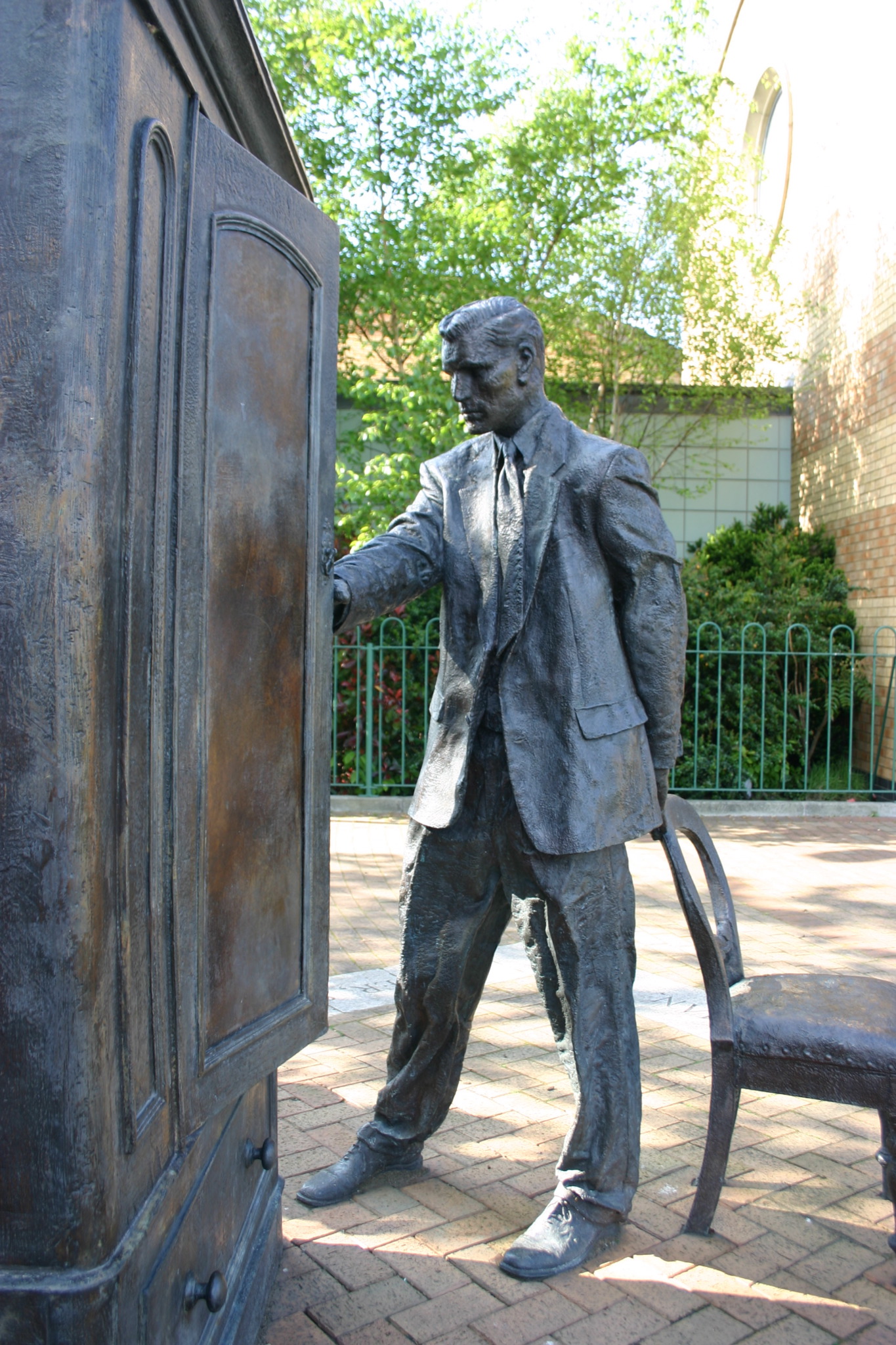(Előszó); ford. Várhidi Gyula
C. S. Lewis híres idézetei
használjuk míndkettőre; de ha azt gondolnánk, hogy ezért mindkettőnek ugyanolyannak kell lennie, akkor akár azt is gondolhatnánk, hogy a tér nagysága és Isten nagysága ugyanaz. Valójában oly nagy a különbség a biológiai élet és a szellemi élet között, hogy különböző néven fogom őket nevezni. A biológiait, amely a természet útján jut el hozzánk, s amely (mint minden a természetben) hajlamos az elfogyásra és a pusztulásra, úgyhogy csak a természettől levegő, víz, élelem, stb. alakjában vett állandó támogatással tartható fenn, „Biosznak” nevezem. A szellemi életet, amely Istenben van meg öröktől fogva, s amely az egész természetes világot alkotta, „Zoénak” hívom. A Biosz természetesen mutat bizonyos homályos vagy jelképes hasonlóságot a Zoéhoz, ez azonban csak olyan hasonlóság, mint ami egy fénykép és az általa ábrázolt hely, szobor vagy ember között van. Az az ember, aki a Biosz állapotából a Zoé állapotába kerül, oly nagy változáson menne át, mintha egy szobor faragott kőből valódi emberré válna. És pontosan ez a kereszténység lényege. A világ egy nagy szobrászműhely. Mi vagyunk a szobrok, és az a hír járja a műhelyben, hogy némelyek közülünk egy napon életre fognak kelni.
Keresztény vagyok!; ford. Lukácsi Huba
(1. f.: Az emberi természet törvénye - a jó és a rossz); ford. Várhidi Gyula
C. S. Lewis: Idézetek angolul
The worst of all public dangers is the committee of public safety.
"A Reply to Professor Haldane" (1946), published posthumously in Of Other Worlds: Essays and Stories (1966)
Some of these ideas were included in the essay "The Humanitarian Theory of Punishment" (1949) (see below).
Pilgrim’s Regress 44–45
The Pilgrim's Regress (1933)
“Pride leads to every other vice: it is the complete anti-God state of mind.”
Book III, Chapter 8, "The Great Sin"
Mere Christianity (1952)
C. S. Lewis' Letters to Children – letter to Lucy (11 September 1958)
That is how Bulver became one of the makers of the Twentieth Century.
"Bulverism" (1941)
The Weight of Glory (1949)
“All mortals tend to turn into the thing they are pretending to be.”
Letter X
The Screwtape Letters (1942)
Pilgrim’s Regress 19–20
The Pilgrim's Regress (1933)
"Christian Apologetics" (1945), p. 89
God in the Dock (1970)
Letter (19 April 1951); published in Letters of C. S. Lewis (1966), p. 230
Paraphrased from a letter C. S. Lewis wrote to Mrs. Johnson on March 16, 1955: "A housewife's work [is] surely, in reality, the most important work in the world ... your job is the one for which all others exist", as reported in The Misquotable C.S. Lewis (2018) by William O'Flaherty, p. 63
Misattributed
“The devil…the prowde spirit…cannot endure to be mocked.”
Thomas More, quoted at the beginning of The Screwtape Letters
Misattributed
“It's so much easier to pray for a bore than to go and see one.”
Letters to Malcolm: Chiefly on Prayer (1963)
“There is wishful thinking in Hell as well as on Earth.”
Preface
The Screwtape Letters (1942)
“I became my own only when I gave myself to Another.”
Letters of C. S. Lewis (17 July 1953), para. 2, p. 251 — as reported in The Quotable Lewis (1989), p. 334
“God can make good use of all that happens, but the loss is real.”
Perelandra (1943)
The Discarded Image: An Introduction to Medieval and Renaissance Literature (1964)
“The humans live in time but our Enemy (God) destines them for eternity.”
Letter XV
The Screwtape Letters (1942)
Book I, Chapter 1, "The Law of Human Nature"
Mere Christianity (1952)
“The hardness of God is kinder than the softness of men, and His compulsion is our liberation.”
Surprised by Joy (1955)
Letters of C. S. Lewis (29 April 1959), para. 1, p. 285 — as reported in The Quotable Lewis (1989), p. 469
